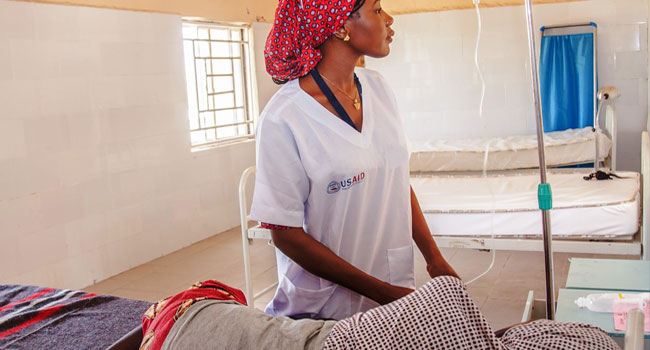Auxiliary Nurse: You Are Either A Professional Or Quack (Part 2)




When the preferred option is not available, the available one becomes imperative. Nurses are becoming increasingly scarce in Nigeria these days. As a matter of fact, our healthcare system is teetering on the edge. Statistically, we are now left with one nurse per 1,660 Nigerians, far below the World Health Organization (WHO) policy recommendation of 25 nurses for every 10,000 patients. As they say, nature abhors a vacuum. In the absence of professional nurses, quackery or auxiliary roles become the last resort.
The reasons why professionals in Nigeria’s health sector are emigrating in droves are not hard to fathom. It’s due to pecuniary considerations, unfavorable conditions of service, and a general lack of a purposeful exit plan after service, where pensions are bizarrely withheld. These and many more factors are responsible for the continuous search for greener pastures, depleting our skilled healthcare workforce and exacerbating the brain drain.
Michael Nnachi, the President of the National Association of Nigeria Nurses and Midwives, revealed that between March 2021 and March 2022, not less than 7,256 trained nurses left Nigeria for the United Kingdom alone. Corroborating and expanding on this claim, the Nursing and Midwifery Council of Nigeria stated that, “in the last five years from 2017 to 2022, a total of 57,000 trained nurses left Nigeria for other countries in search of better pay and working conditions. This is lamentable, discouraging, and tragically affects the life expectancy of an average Nigerian who, when faced with a preventable death from a common illness, ends up dying due to a lack of care.”
Nigeria now ranks seventh among 57 countries facing a critical shortage of health workers in the world. At the recently concluded 2023 Annual General Meeting/Scientific Conference of the National Association of Nigeria Nurses and Midwives, Federal Capital Territory chapter, the Nursing and Midwifery Council of Nigeria said that efforts are being made to curtail the ongoing emigration of nurses abroad, but the strategies to break the emigration chain remain unclear.
Faced with a shortage of skilled manpower and a consistent lack of will to improve the healthcare standards for the average Nigerian, authorities have taken a shortcut. Mr. Olufemi Oloruntoba, the Permanent Secretary of Service Policies and Strategies at the Office for the Head of the Civil Service of the Federation, in a circular issued earlier this week, stated that the Service has “approved that clinical health workers who have attained the compulsory retirement age/years may be given a contract appointment on the same salary scale level that they retired on if desired and deserved.” In simpler terms, after 35 years of service or upon reaching the retirement age of 60, we are now recalling those who should be enjoying the fruits of their labor and nurturing their grandchildren.
Considering the circumstances we find ourselves in, recalling those who should be enjoying their well-deserved retirement is a good initiative that could temporarily revive the ailing healthcare sector. As a nation, this is a palliative. However, we need to address the root causes of these problems to halt this distressing trend and ensure the standard operation of our healthcare system.
The opinions expressed in this publication are those of the authors. They do not represent the opinions or views of Osun Defender


Comrade ABOSEDE OLUWASEUN “Safety” , is a Unionist, a right activist and a Social Crusader.










